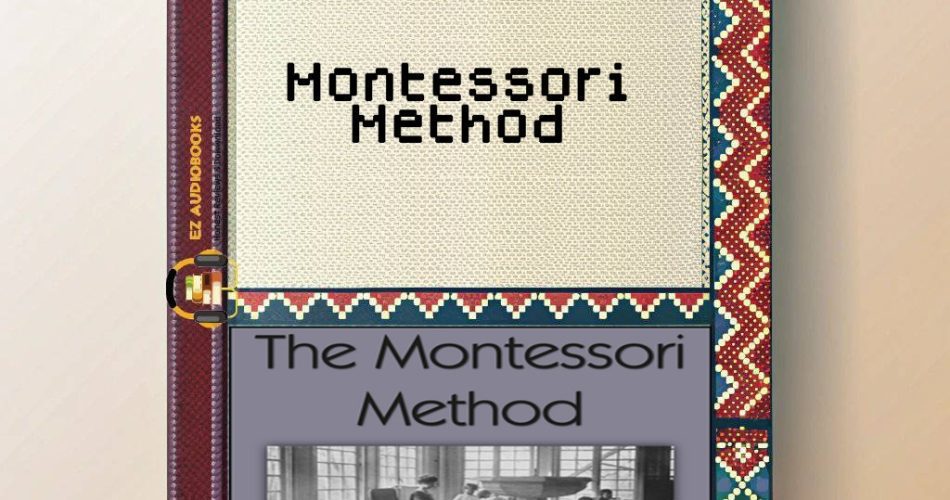Audiobook Sample
Listen to the sample to experience the story.
Please wait while we verify your browser...
- Title: Montessori Method
- Author: Maria Montessori
- Narrator: LibriVox Volunteers
- Length: 11:53:07
- Version: Abridged
- Release Date: 01/01/2016
- Publisher: LibriVox
- Genre: Science & Technology, History
- ISBN13: SABLIB9782156
As a literature professor with a deep curiosity for how ideas shape human experience, I approached ‘The Montessori Method’ by Maria Montessori, narrated by LibriVox Volunteers, with both academic interest and personal resonance. This audiobook, available as a free download, offers a window into the revolutionary educational philosophy that emerged in the early 20th century, challenging traditional pedagogies with a child-centered approach. What fascinates me most is how Montessori’s scientific pedagogy, detailed in this work, transcends its historical context to remain profoundly relevant in today’s discussions on education and child development.
Through a cultural lens, I found myself connecting deeply with Montessori’s emphasis on ‘spontaneous self-development.’ This principle, which posits that children possess an innate drive to learn when given the right environment, reminded me of a moment during my time as a visiting professor in Tokyo. While exploring Haruki Murakami’s works, I observed how cultural contexts shape learning and perception. Just as Murakami’s narratives felt more organic in Japanese, Montessori’s ideas seem to resonate most when tailored to a child’s unique cultural and personal environment. I couldn’t help but reflect on how her ‘prepared environment’ – a space meticulously designed with child-sized materials – parallels the way a storyteller crafts a world for their reader, inviting exploration within safe boundaries.
Delving into the content, ‘The Montessori Method’ meticulously outlines key principles that have influenced educational science and history. The concept of the ‘prepared environment’ and the role of the teacher as a ‘directress’ – an observer and guide rather than a dictator of knowledge – struck me as a powerful metaphor for literary mentorship. Much like a professor guiding students through complex texts without imposing interpretations, Montessori’s teacher facilitates discovery. Her focus on didactic materials, designed for hands-on learning and self-correction, and her recognition of ‘sensitive periods’ – windows of intense learning readiness – offer a framework that is as much about nurturing curiosity as it is about imparting skills. The historical context, including the ‘first Montessori Miracle’ where children deemed uneducable excelled in state exams, serves as a compelling narrative of potential unleashed, a theme that echoes in many progressive educational reforms documented in science and technology history.
Turning to the audiobook experience, the narration by LibriVox Volunteers presents both strengths and challenges. As someone who has explored storytelling across mediums – recall my Berkeley seminar on ‘Cloud Atlas’ where we dissected how format impacts narrative engagement – I’m attuned to how audio can transform a text. The volunteer narrators bring a commendable earnestness to the work, and their varied voices reflect a community effort that aligns with Montessori’s collaborative ethos. However, the audio quality and pacing can be inconsistent at times, lacking the polish of professional productions. Some sections feel rushed, which might hinder listeners new to pedagogical texts from fully absorbing complex concepts like ‘freedom within limits.’ Yet, the authenticity of the narration, coupled with the fact that this is a free audiobook, makes it an accessible entry point for anyone interested in educational history or innovative teaching methods.
Balancing my critique, I must acknowledge the audiobook’s strengths. The listening experience, especially for a text as dense as this, allows for a reflective pace – you can pause and ponder Montessori’s observations on practical life activities or her insistence on systematic observation of children. Yet, I found myself wishing for more dynamic intonation to mirror the passion behind Montessori’s reforms. Compared to other historical and scientific audiobooks I’ve encountered in the science and technology genre, this production prioritizes content over performance, which may suit academic listeners but could alienate a broader audience seeking an immersive auditory journey.
In comparison to other educational philosophies, such as Friedrich Froebel’s Kindergarten or John Dewey’s progressive education, Montessori’s method stands out for its structured individualism. Where Froebel emphasized symbolic play and Dewey focused on social problem-solving, Montessori’s prepared environment and specific materials cater to personal discovery, a nuance that comes through clearly in the audiobook despite narration limitations. This distinction made me reflect on how educational theories, much like literary movements, evolve through dialogue with one another, each offering a unique lens on human potential.
For potential listeners, I recommend this free audiobook to educators, parents, and students of educational history who seek a foundational text in pedagogy. It’s particularly valuable for those exploring science and technology’s intersection with human development, as Montessori’s method is rooted in scientific observation. However, be prepared for a listening experience that prioritizes substance over style – pair it with a quiet evening and a notebook to jot down insights on child-centered learning or the role of environment in education.
On a personal note, engaging with this audiobook stirred memories of my own educational journey. I recall a childhood teacher who, much like Montessori’s directress, allowed us to explore subjects at our own pace, fostering a love for learning that persists in my academic career. Listening to Montessori’s words, I felt a renewed appreciation for those early experiences that shaped my intellectual curiosity, reminding me why I’m drawn to narratives – whether literary or pedagogical – that celebrate the individual’s capacity to grow.
As I close this reflection, I invite you to dive into this audiobook free of charge and uncover the timeless wisdom of Montessori’s vision. Until our next exploration of ideas, keep questioning and connecting through the stories that shape our world. Warm regards, Prof. Emily Chen.

